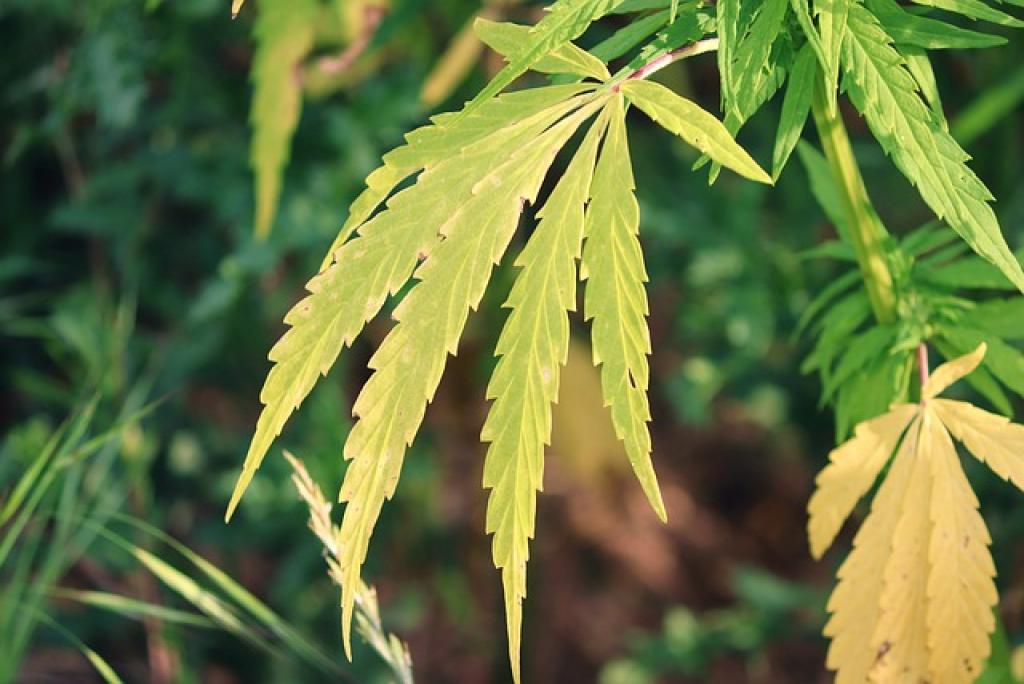For centuries, hemp has been a vital component in traditional medicine, cherished for its natural healing properties. Across various cultures, this versatile plant has been used to treat ailments, enhance well-being, and promote overall health.
We’ll journey through the history of hemp in ancient remedies, exploring its role in Chinese, Indian, and Middle Eastern medicine. Each tradition has uniquely harnessed hemp’s therapeutic benefits, from calming anxiety to relieving pain.
Discover how these age-old practices are finding their place in modern holistic health approaches. By delving into the traditional uses of hemp, we can appreciate its enduring legacy and uncover valuable insights for today’s natural wellness enthusiasts.
Hemp’s Historical Use in Traditional Medicine
Hemp’s medicinal use dates back thousands of years. In ancient China, it was revered for its healing properties. Shen Nong, the legendary emperor and ‘Father of Chinese Medicine,’ included hemp in his pharmacopeia around 2800 BCE. It was used to treat pain, digestive disorders, and even malaria.
India’s Ayurveda, one of the oldest holistic healing systems, embraced hemp for its versatile benefits. Known as “Vijaya,” it was used to alleviate anxiety, promote sleep, and enhance digestion. Ayurvedic practitioners crafted various formulations to target different ailments, illustrating hemp’s adaptability.
In the Middle East, hemp appeared in Persian medical texts as early as the 10th century. It served as an anti-inflammatory agent and was used in poultices and teas to relieve pain and promote relaxation.
Even in medieval Europe, hemp found its way into folk remedies. It was commonly used in concoctions to treat wounds, reduce fever, and ease muscle discomfort. These diverse applications highlight hemp’s integral role in historical medical practices across different cultures.
Understanding hemp’s historical use provides a rich background, showcasing its longstanding significance and the breadth of its therapeutic potential.
Exploring the Medicinal Properties of Hemp
Hemp is packed with a variety of compounds that contribute to its medicinal properties. One of the most well-known is cannabidiol (CBD), which is renowned for its anti-inflammatory, analgesic, and anti-anxiety effects. Unlike THC, CBD does not produce a psychoactive ‘high’, making it appealing for those seeking relief without altering their mental state.
Another remarkable compound found in hemp is terpenes. Terpenes are aromatic molecules that can influence how other compounds interact within the body. For instance, they can enhance the absorption of cannabinoids and also provide therapeutic effects like reducing pain or stress.
Essential fatty acids in hemp, such as omega-3 and omega-6, play a vital role in maintaining overall health. These fatty acids support heart health, reduce inflammation, and contribute to skin elasticity and hydration. Hemp oil, which is extracted from the seeds, is a rich source of these beneficial nutrients.
Hemp is also high in antioxidants, which help combat oxidative stress and protect cells from damage. This can be particularly beneficial in reducing the risk of chronic diseases and promoting overall well-being.
In addition to CBD, hemp contains numerous other cannabinoids, each with their own potential benefits. Some studies suggest that these compounds work better together, a phenomenon known as the “entourage effect,” amplifying their overall impact.
Altogether, these unique features of hemp highlight its vast potential in the medicinal arena. Its diverse range of compounds offers a multitude of ways to support health and wellness, from targeting specific conditions to improving general health.
How Hemp Compares to Other Herbal Remedies
Hemp stands out in the world of herbal remedies for its versatility and unique compounds. Herbs like turmeric are famous for their anti-inflammatory properties, but hemp offers a broader spectrum of benefits thanks to its rich cannabinoid content.
Unique Cannabinoid Profile
While herbs such as lavender are commonly used for stress relief and insomnia, they don’t possess cannabinoids like hemp does. Cannabinoids interact with our body’s endocannabinoid system in ways that other herbs cannot, providing unique therapeutic effects. This makes hemp particularly effective for a wide range of issues, from anxiety to chronic pain.
Hemp also compares favorably with echinacea, a popular herb for boosting the immune system. Both hemp and echinacea contain compounds that can modulate the immune response, but the cannabinoids in hemp offer additional pathways for supporting immune health that echinacea lacks.
When it comes to skin health, aloe vera is a go-to for its soothing and healing properties. However, hemp oil adds value not only for its moisturizing effects but also for its anti-inflammatory and antioxidant properties, offering a comprehensive approach to skincare.
In terms of nutritional value, few herbs can compete with hemp seeds. Herbs like spirulina are known for their nutrient density, but hemp seeds provide a balanced ratio of proteins, essential fatty acids, and vitamins, making them a complete nutritional package.
All in all, while other herbal remedies have their own sets of benefits, hemp’s unique combination of cannabinoids, terpenes, and nutrients gives it a distinctive edge. It provides a multifaceted approach to health and wellness that is hard to match.

Case Studies: Hemp’s Efficacy in Healing
Hemp’s healing properties aren’t just theoretical; they have been demonstrated in numerous case studies and real-life applications. One particularly compelling example comes from patients with chronic pain conditions. Research has shown that hemp-based therapies can significantly reduce pain levels and improve quality of life, especially for those who have found little relief with traditional medications.
Chronic Pain Management
One case study featured a 45-year-old woman suffering from fibromyalgia, a condition characterized by widespread pain. After incorporating hemp oil into her routine, she reported a marked decrease in pain and improved sleep quality. Her doctors noted that her reliance on pain medication dropped by nearly 50%, underscoring hemp’s potential as an alternative treatment.
Another fascinating case involves individuals with anxiety disorders. In one study, participants who struggled with generalized anxiety reported feeling more relaxed and less jittery after using hemp-derived CBD products. One participant even noted the positive change in social situations, expressing increased confidence and reduced anxiety levels.
Skin Conditions and Hemp
Hemp has also shown promise in treating skin conditions. A teenager with severe eczema experienced significant improvement after applying hemp oil to affected areas. The anti-inflammatory properties of the oil helped reduce redness and itching, while its moisturizing effects aided in skin repair. Within weeks, there was a visible reduction in eczema flare-ups, providing a safer and more natural option than steroid creams.
Finally, let’s consider the use of hemp in post-surgery recovery. In one case, a 60-year-old man recovering from knee surgery added hemp oil to his rehabilitation plan. The result? Faster healing times, reduced swelling, and an overall easier recovery process. His physical therapist noted better joint mobility and reduced discomfort, making his journey to full recovery smoother.
These case studies highlight the potent healing capabilities of hemp across a range of issues. Whether for chronic pain, anxiety, skin conditions, or post-surgical recovery, hemp offers a natural alternative that is both effective and versatile.
Understanding the Science Behind Hemp’s Healing Powers
To truly appreciate hemp’s healing magic, it’s essential to peek behind the curtain and understand the science involved. The key lies in hemp’s unique chemical compounds, primarily cannabinoids like CBD (cannabidiol) and trace amounts of THC (tetrahydrocannabinol).
The Endocannabinoid System
Our bodies have an endocannabinoid system (ECS), a complex cell-signaling system critical for maintaining internal balance. The ECS regulates numerous functions, including pain, mood, immune response, and sleep. Hemp-derived cannabinoids interact with ECS receptors, helping to restore balance and promote healing.
For example, CBD engages with ECS receptors to mitigate inflammation and pain. This interaction is why CBD is often credited with providing relief in conditions such as arthritis and chronic pain.
Anti-Inflammatory Properties
Another fascinating aspect is the anti-inflammatory properties of hemp. Inflammation is a common root of many ailments, from skin conditions to cardiovascular issues. Cannabinoids possess strong anti-inflammatory properties, which is why they’re effective in reducing eczema flare-ups or soothing sore muscles after a workout.
Research has shown that hemp oil is rich in omega-3 and omega-6 fatty acids, which are vital for reducing inflammation and supporting brain health.
Lastly, it’s worth noting the role of terpenes, aromatic compounds found in hemp. Terpenes, such as limonene and myrcene, aren’t just responsible for hemp’s distinctive scent. They also contribute therapeutic benefits, including stress relief and enhanced mood, making the healing effects of hemp a well-rounded experience.
By understanding these scientific principles, we can better appreciate why hemp is becoming a go-to natural remedy for various health issues. Whether it’s managing pain, reducing anxiety, or promoting overall wellness, the science backs up the powerful effects of this ancient plant.
Dispelling Myths About Hemp in Traditional Healing
With an intriguing blend of history and science, hemp continues to capture our fascination. However, it’s easy for myths to creep into the conversation, clouding our understanding and appreciation of this versatile plant. Let’s tackle some of these common misconceptions head-on.
Myth 1: Hemp Will Get You High
One of the most persistent myths is that hemp will get you high. The truth is, industrial hemp contains only trace amounts of THC—the psychoactive compound found in marijuana. These minimal levels are not enough to produce any mind-altering effects. Instead, hemp is rich in CBD, which offers therapeutic benefits without the high.
Myth 2: Hemp and Marijuana Are the Same
Although they belong to the same Cannabis sativa species, hemp and marijuana are quite different. Hemp is grown primarily for its robust stalks and seeds and has a high CBD and low THC ratio. On the other hand, marijuana is cultivated for its flowers, which contain higher levels of THC. Simply put, they are like botanical cousins with distinct uses and benefits.
Myth 3: Hemp Is Only Useful for Pain Relief
While pain relief is a significant benefit, hemp’s potential extends far beyond that. It’s a multitasker in traditional healing, used for easing anxiety, improving sleep, and even as an anti-inflammatory agent. Additionally, hemp oil is a fantastic emollient for the skin, providing nourishment and moisture.
Hemp is Just a Fad
Another misconception is that hemp is just a trendy, short-lived phenomenon. In reality, hemp has been used for millennia in various cultures for its myriad benefits. From ancient Chinese medicine to Ayurvedic practices, hemp has a well-documented history of effectiveness. Its resurgence in modern wellness is a testament to its enduring value.
Dispelling these myths helps us move towards a more enlightened view of hemp. Recognizing its numerous benefits allows us to make informed choices and fully integrate this remarkable plant into our wellness routines.
Integrating Hemp into Modern Healthcare Practices
The journey of hemp from ancient uses to modern applications is nothing short of remarkable. Today, integrating hemp into healthcare practices is becoming increasingly popular among health professionals and patients alike.
One of the primary ways hemp is utilized is through CBD oil. This versatile product can be administered in various forms—oils, capsules, and topicals. It’s being used to manage chronic pain, reduce inflammation, and even support mental health by alleviating anxiety and depression.
Incorporating hemp into modern healthcare also means looking at its preventative benefits. For example, hemp seeds are a powerhouse of nutrients, including omega-3 and omega-6 fatty acids, which support heart health. Adding hemp seeds to your diet can be as simple as sprinkling them on your yogurt or blending them into smoothies.
Healthcare professionals are also exploring hemp-based treatments for conditions like epilepsy. The FDA has approved a CBD-based drug, Epidiolex, for treating severe forms of childhood epilepsy. This approval has opened doors for more research and acceptance in mainstream medicine.
Another promising area is skin health. Hemp-infused skincare products are gaining traction for their potential to soothe various skin issues like eczema and psoriasis. The anti-inflammatory properties of hemp oil can help reduce redness and irritation, making it a favorite among dermatologists.
To truly integrate hemp into healthcare, education is key. Both patients and healthcare providers need to be well-informed about the benefits and limitations. Open dialogue and continued research will pave the way for hemp to become a staple in modern medicine, just as it was in traditional healing practices.
Integrating hemp into healthcare is not just a trend—it’s a step towards more holistic and natural treatment options. Through innovative applications and ongoing research, hemp is carving out a place in the future of wellness and medical care.
The Bottom Line: Harnessing Hemp for Holistic Wellness
In wrapping up, it’s clear that hemp is making a significant impact in the realm of health and wellness. From its ancient beginnings to its modern-day uses, hemp has proven to be a versatile and valuable resource.
Whether it’s managing chronic pain, improving mental health, or offering nutritional benefits, hemp integrates seamlessly into various aspects of healthcare. Its applications range widely, providing holistic options that can complement traditional treatments.
Furthermore, ongoing research continues to unveil new potential uses for hemp, promising even more benefits in the future. As awareness grows and stigma decreases, the acceptance of hemp in mainstream medicine is likely to expand.
It’s also important to remember that education plays a crucial role in this integration. Both healthcare providers and patients need to understand how to effectively use hemp to maximize its benefits. This means staying informed about the latest research and being open to discussing it with healthcare professionals.
In conclusion, harnessing the power of hemp for holistic wellness is not just a possibility but a growing reality. Its natural properties offer a multitude of health benefits that can enhance overall well-being. By embracing hemp and continuing to explore its potential, we move closer to a future where natural and effective health solutions are within everyone’s reach.
So, whether you’re new to hemp or have already experienced its benefits, there’s no better time to consider how this ancient plant can fit into your modern wellness routine. The path to holistic health might just be a hemp-infused journey.






